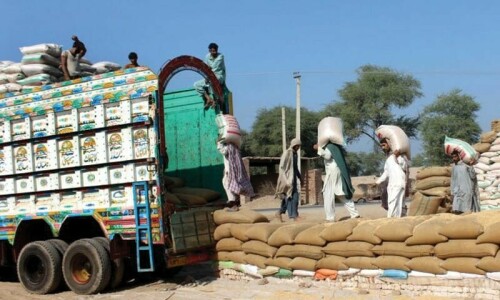LAHORE: Over 200 people from various walks of life in South Asia have come together in the wake of rising tensions between India and Pakistan to condemn all forms of violence and urge governments and security establishments of the two countries to take all steps possible towards improving relations.
In a statement released on Sunday, concerned citizens from India, Pakistan, Bangladesh, Sri Lanka and Afghanistan, including journalists, lawyers, educationists, students, filmmakers among others, expressed concern “at the current rise in animosity and antagonism” between the nuclear-armed neighbours. They stated that since “Partition, the people of India and Pakistan have seen too many conflicts and loss of many valuable lives. Those who suffer particularly are ordinary people denied visas and those in the conflict zones, especially women and children as well as fishermen, who get routinely rounded up and arrested for violating the maritime boundary”.
The statement further states: “Whenever it seems that relations might improve, some form of disruption takes place ranging from jingoistic statements to militant attacks. The traditional response to such disruptions only strengthens those who want continued tensions between our two countries.”
The civil society members demanded the governments of India and Pakistan develop an institutionalised framework to ensure continuous and uninterrupted talks between both sides; ensure that political leaders, diplomats and civil servants from both countries conduct talks on the sidelines of all international and multilateral forums; recognise that the Kashmir dispute, above all, concerns the lives and aspirations of Kashmiri people, and work to resolve it through uninterrupted dialogue between all parties concerned; implement the 2003 ceasefire agreement; renounce all forms of alleged proxy wars, state-sponsored terrorism, human rights violations, cross-border terrorism and subversive activities against each other, including through non-state actors or support of separatist movements in each other’s state.
The demands also include support for and encouragement to all forms of people-to-people contact, removal of visa restrictions and discrimination faced by citizens of both countries and increasing trade and economic linkages and cultural exchanges. They also urged media houses on both sides to prevent the growing militarisation of debate. “We must act responsibly and stop broadcasting hate speech and creating public hysteria aimed at the other country and/or vulnerable communities,” the statement added.
Some prominent names among the over 250 signatories include Adil Najam, former Indian naval chief Admiral L Ramdas, Afrasiab Khattak, Asma Jahangir, Dr Ayesha Jalal, Dr Ayesha Siddiqa, Beena Sarwar, Bushra Gohar, retired Gen Tej Kaul, Jyoti Malhotra, retired Air Vice Marshal Kapil Kak, Kamla Bhasin, Kishwar Naheed, Mahesh Bhatt, Mani Shankar Aiyar, Marvi Sirmed, Nasim Zehra, Noorjehan Bilgrami, Dr Pervez Hoodhboy, Raza Rumi, Salima Hashmi, Sheema Kermani, Urvashi Butalia.
Published in Dawn, May 8th, 2017












































Dear visitor, the comments section is undergoing an overhaul and will return soon.